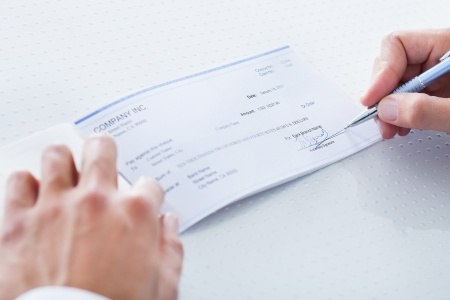What Is the Prompt Payment Rule?
late payments | prompt payment | 2 Min Read
 Although most of your government clients are probably very good about paying their invoices on time – or even early to take advantage of a prompt payment discount – every so often you may get that one agency that is difficult to collect from. If it happens once or twice, it might not be that big of a deal. But what if it is every month, or on a significantly large invoice?
Although most of your government clients are probably very good about paying their invoices on time – or even early to take advantage of a prompt payment discount – every so often you may get that one agency that is difficult to collect from. If it happens once or twice, it might not be that big of a deal. But what if it is every month, or on a significantly large invoice?
One helpful tool you can use to collect payment is the Prompt Payment Rule.
How the Prompt Payment Rule Works
Most government contractors are familiar with Prompt Payment Discounts, when it comes to government contracting, but they are unaware of the protection granted to them through the Prompt Payment Rule.
What is the Prompt Payment Rule? Just as contractors are expected to perform work or deliver products within the specified time frame, agencies are expected to pay. The Prompt Payment Rule says that an invoice must be proper and valid to expect payment from the agency, meaning that all of the information on the invoice must be listed correctly as agreed upon by the contractor and the agency, and that the invoice must have been properly received by the agency.
“Proper and Valid” Invoicing
According to the Department of the Treasury, an invoice is deemed received under one of two conditions:
- The date the agency marks the invoice with the date of receipt
- The seventh day after the date on which the goods are delivered or services are completed, unless acceptance occurs earlier or a longer acceptance period is specified in the contract
However, if the agency does not mark an invoice with the date of receipt, the date that the contractor put on the invoices starts the payment period. (Learn more about valid and proper receipts.)
The two scenarios above are just in reference to an agency receiving an invoice. Keep in mind that an on time payment is due under one of these four conditions:
- The date specified in the contract
- In accordance with discount terms when the vendor has offered a discount and the agency has accepted those terms
- On an accelerated schedule, when the conditions for accelerated payments apply
- Thirty days after the agency has received a proper invoice
Assessing Interest
In actuality, agencies are expected to automatically pay the interest on late payments without requiring the request of the contractor. If you’ve ever received a late payment that was higher than the amount you expected, then you most likely experienced this.
This is not always the case, so in the event you need to collect a late payment it is important to know what interest rate is acceptable to charge. (Save this website: Prompt Pay Interest Rate History.) Currently the rate is 2.125%, but about every six months the Department of the Treasury updates the Prompt Payment Interest Rate.
Before you begin the discussion of collecting Prompt Payment Interest be sure to read through the Federal Acquisition Regulations Prompt Payment Section.
About Hannah Patrick
Hannah Patrick currently serves as an Engagement Manager with Winvale. She works in the Contracting Consulting department specializing in contract compliance, developing winning proposals for the GSA Multiple Award Schedule program, contract maintenance and contract strategy to achieve organizational objectives. Hannah previously supported Winvale’s Research Department as an Analyst where she worked with companies interested in creating or building a presence in the federal marketplace






